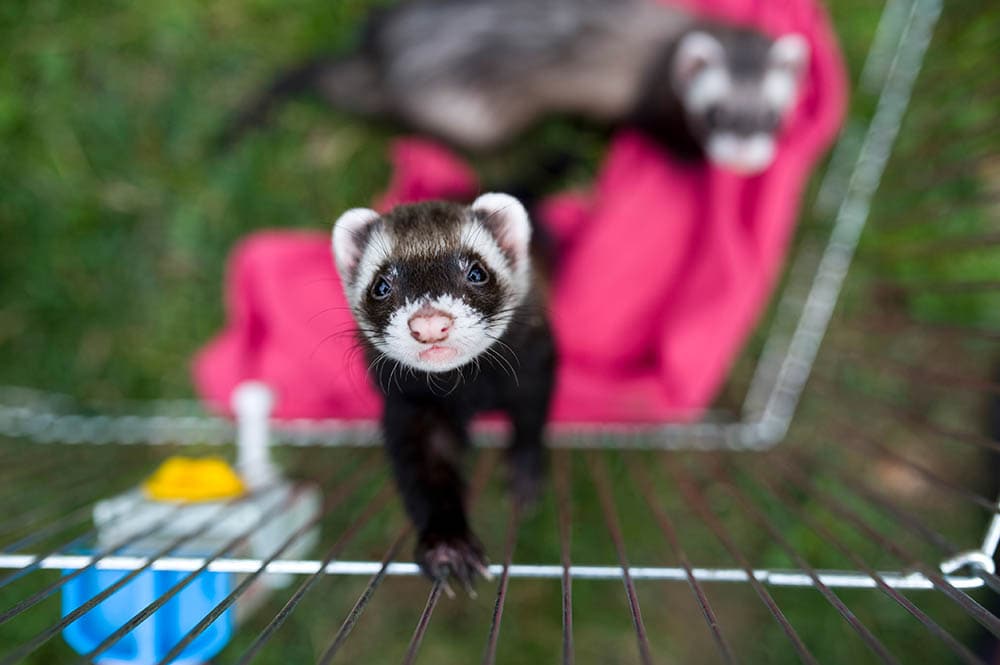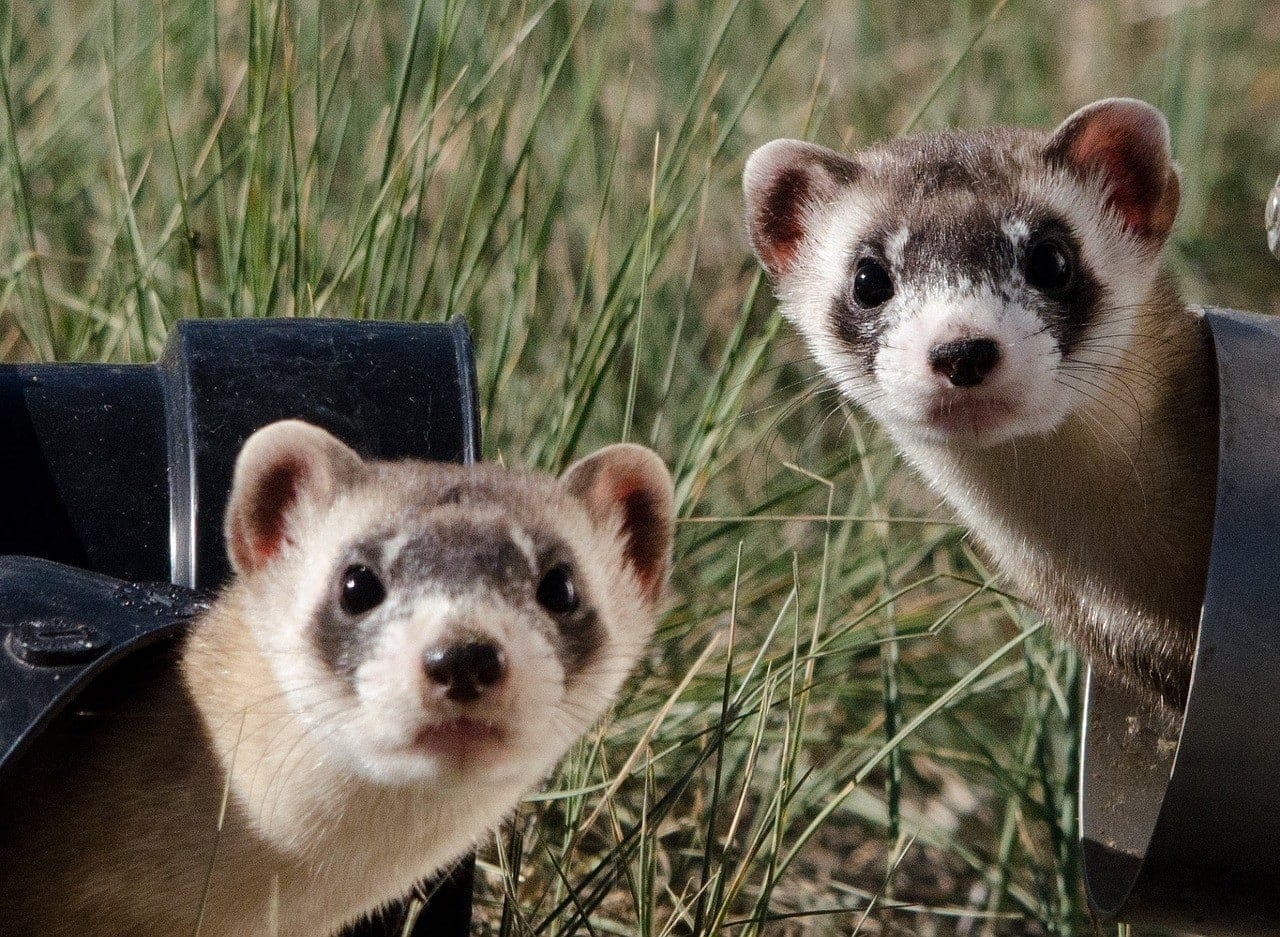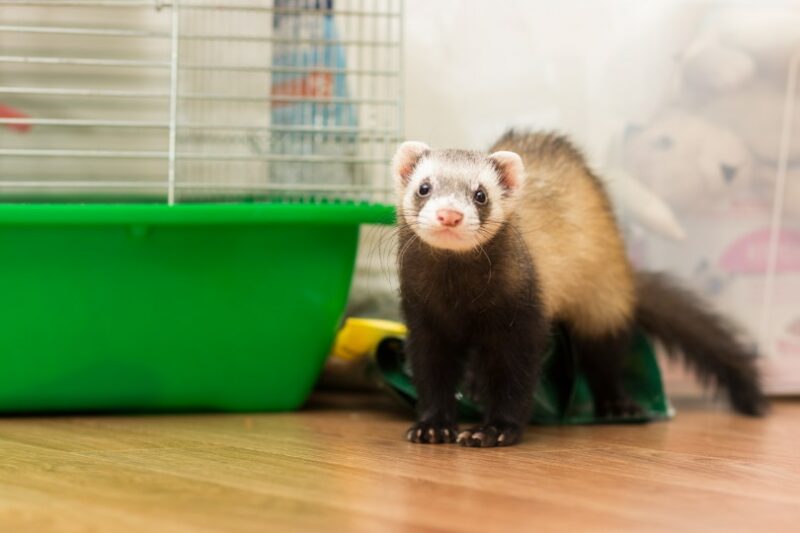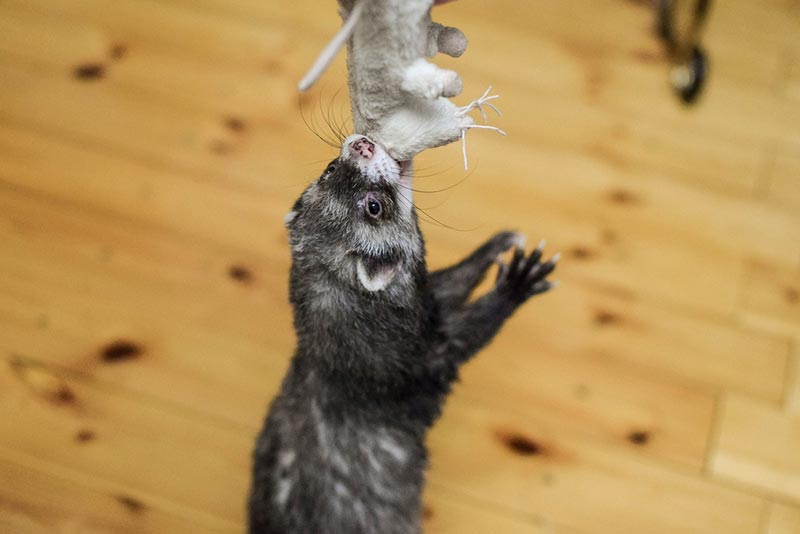
Do you have a ferret as a pet? If so, you may be wondering how long can ferrets go without food and water, especially if you were to have to go out of town for a few days. There’s no easy answer to this question, but the good news is that ferrets are resilient little creatures that can generally survive for quite a while with limited nutrition. Here’s what you need to know about giving your furry friend the care they need.
How Long Can Ferrets Go Without Food and Water?
When it comes to how long a ferret can go without food or water, the answer varies depending on their size, age, and overall health. Generally speaking, ferrets can survive for about 1 week without food and 2 days without water. However, this does not mean that you should let your pet go this long without nutrition!

Ferrets Need More Food Than You May Think!
It’s no secret that ferrets love to eat, but you may be surprised to learn that they actually need more food than cats and dogs. That’s why it’s important to provide your ferret with a steady supply of quality nutrition. Without enough food and water, ferrets can become weak and malnourished.
What If I Just Forgot to Feed My Ferret for Two Days?
If you forget to feed your ferret for two days in a row, don’t panic! Your pet should be just fine. However, if this becomes a regular occurrence, it could lead to serious health consequences. Make sure that you stay on top of feeding your furry friend and offer them plenty of fresh water each day. Set a reminder if you need to, as this can help you get into a routine of feeding your pet at the same time each day so that you don’t forget again in the future.

When to See a Vet
If your ferret has gone longer than a week without food, or more than 2 days without water, it’s important to seek medical help right away. Your ferret can quickly become dehydrated without water, which can lead to serious health consequences or even death. A veterinarian can provide supportive treatments, such as providing fluids, and monitor your pet’s recovery to make sure they get back on track.
Ferret Care FAQs

Q: What is the best type of food for ferrets?
A: High-quality dry kibble formulated specifically for ferrets is usually the best choice.
Q: How much should I feed my ferret?
A: Generally speaking, feeding your ferret 2 tablespoons of food per day should be enough. However, this can vary depending on your pet’s size and activity level.
Q: How often should I give my ferret water?
A: Ferrets should have access to fresh, clean water at all times. Change the water once a day or as needed to ensure it’s always clean.
Q: What are the signs of dehydration in ferrets?
A: Signs of dehydration in ferrets include sunken eyes, dry nose or mouth, fatigue, and lack of appetite.
Q: What other signs should I look out for?
A: If you notice any unusual changes in your ferret’s behavior, contact your veterinarian right away.
Q: Is it normal for ferrets to go a few days without eating?
A: Yes, it’s perfectly normal for ferrets to skip meals once in a while. However, if this happens frequently, contact your veterinarian for further advice, as it could be a sign that your ferret is sick or not feeling their best.
Q: What should I do if my ferret refuses to eat?
A: If your ferret is refusing to eat, it may be a sign of an underlying health issue. Contact your veterinarian right away for further advice.
Q: Can ferrets eat human food?
A: Generally speaking, it’s best to avoid giving your ferret any human food. Stick to high-quality kibble formulated specifically for ferrets.
Q: How can I make sure my ferret gets enough nutrition?
A: Feed your ferret high-quality kibble and provide them with plenty of fresh water each day. Also, make sure that you take your pet to the vet for regular checkups to ensure they’re in peak condition.
Q: What type of environment does a ferret need?
A: Ferrets should have access to plenty of room to explore, with places to climb and hide. They also love toys and other objects that they can crawl through or play with. Providing these types of enriching activities will help keep your pet happy and healthy.
Q: How often should I take my ferret to the vet?
A: Your ferret should visit the vet at least once a year for preventative care. Additionally, if you suspect your pet is sick or injured, it’s best to seek medical attention right away.
Q: Does my ferret need to be in a carrier?
A: Yes, ferrets should be transported in a sturdy cat carrier when going to the vet or other places. This will ensure your pet’s safety and help them feel more comfortable during their journey.
Q: Are ferrets affectionate?
A: Yes, ferrets can be very loving and affectionate pets. They love to play and cuddle with their owners, so make sure to provide your pet with plenty of attention!
Q: What are the benefits of owning a ferret?
A: Ferrets make great companions for people of all ages. They’re also very low-maintenance pets, so they’re perfect for busy households. Plus, ferrets are extremely loyal and loving creatures that will provide you with many years of joy and laughter.
Q: Is it difficult to look after a ferret?
A: It doesn’t have to be! Ferrets are relatively easy to care for as long as you provide them with the right diet, environment, and medical attention. With a bit of research and dedication, you’ll be able to keep your ferret happy and healthy for years to come.
Q: How much food do pregnant ferrets need?
A: Pregnant ferrets may need extra food to ensure they receive enough nutrition. Talk to your veterinarian for specific recommendations on how much and what type of food is best for your pregnant pet.
Q: What other things do I need to know about ferret care?
A: Just remember to keep your pet’s environment clean, safe, and provide them with plenty of fresh food and water each day. In addition to regular feeding, you should also make sure your ferret gets plenty of exercise. Ferrets love to play and explore, so provide them with lots of toys and let them out for supervised playtime each day. Additionally, remember to take your pet to the vet for regular checkups. This will help ensure they stay in top shape throughout their life.
Q: What should I do if my ferret has an accident or becomes ill?
A: If your ferret experiences any type of traumatic injury or illness, it’s important to seek medical help right away. A veterinarian can provide supportive treatments and monitor your pet’s recovery to make sure they get back on track.
Q: How do I know if my ferret is happy?
A: Happy ferrets are usually active and curious, so you should be able to tell if they’re content. Additionally, they often make a wide range of vocalizations such as barking, chattering, and purring. If your pet seems lethargic or isn’t as playful or vocal as usual, it could be a sign that something is wrong. Be sure to take them to the vet for a checkup if you have any concerns. With the right care and attention, your ferret will be sure to live a long and happy life!
Conclusion
It’s crucial to provide your ferret with the necessary nutrition they need to stay healthy and happy — and that includes a steady supply of both food and water. Without the proper nutrition, your ferret could become weak or malnourished over time. So, make sure to keep an eye on their eating habits and provide them with plenty of quality food and fresh water!
Featured Image Credit: Couperfield, Shutterstock








